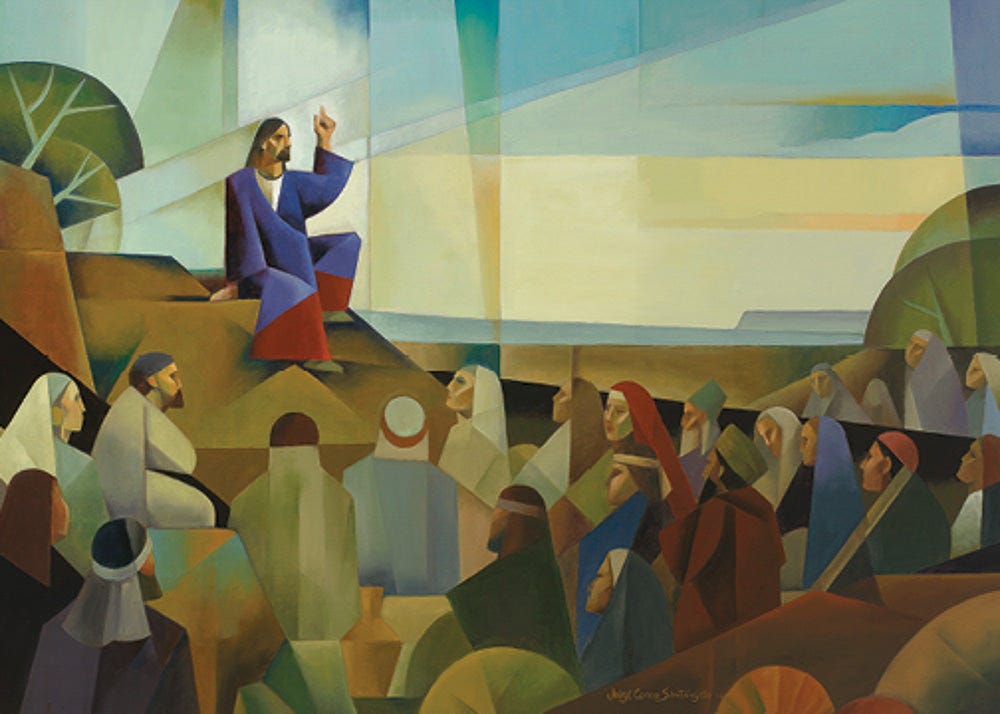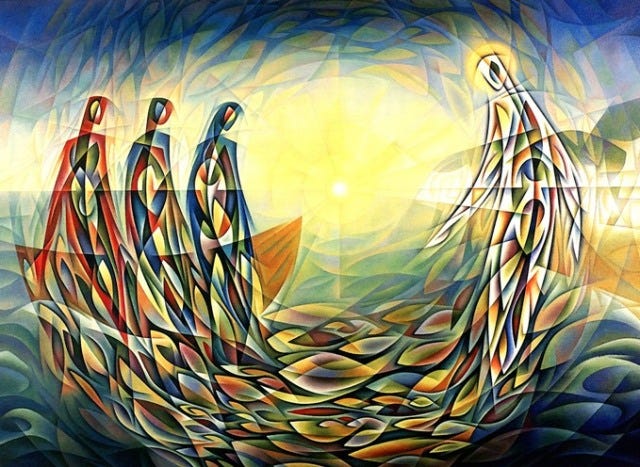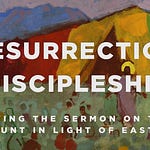God of grit and grace,
you called us to be salt in a world that’s lost its flavor,
and light in places that prefer the dark.
So shake us out—
scatter us where you need us—
and don’t let us settle for safe or bland.
And for heaven sake, do not allow us to be underseasoned potato salad
In the name of Jesus,
who salted the earth with mercy and lit it up with resurrection,
Amen.
I don’t know what kind of spices you keep in your cabinet, but if you’re like me, there’s probably at least one jar back there with a “best by” date that expired before the expiration of the Obama administration. It’s still safe to use but the flavor of the spice may not be as pungent as it once was. I remember my grandmother’s pantry with two or three jars of the same spices. Two cumin. Three paprika. Three garlic powders. Four salts. But here is the thing about salt: it does not expire. Sure, it can lose its flavor after it’s best by date, but it doesn’t rot. It doesn’t decay. It doesn’t die. Even salt that is no longer salty is still salt.
“You are the salt of the earth,”[i] Jesus said. Not you could be, one day, after you do X, Y, and Z. Not, “Try your best!” You are. Period. And if you lose your saltiness, what good are you? You’re not seasoning anymore. You’re sidewalk gravel.
This part of the Sermon on the Mount comes on the coattails of Jesus blessing all the wrong people—the mourners, the meek, the poor in spirit. He is not done turning the world on its head. Jesus turns to the disciples and tells them who they are: not potential spice, not possible light—but salt and light right now whether or not they feel ready.
Salt in the ancient world was not just about flavor. It was preservation, what chemical preservatives are today. Without it, meat spoiled. Communities salted meat not to sell it for an up-charge but to keep it from rotting. Salt was how they kept life going.
So, when Jesus says, “You are the salt of the earth,” he’s giving his disciples a job description. Remember, Jesus is still speaking to the disciples.
Because here’s the thing—this is what discipleship looks like in the light of the resurrection. Through His resurrection, Jesus commissions His followers to be the visible community of the kingdom of God, a people set apart as salt and light in the world.
Salt preserves, yes—but it also stings a little when it hits the wound. It draws out the infection. It slows the decay. That’s what the Church is meant to be: a gritty, truth-telling, mercy-giving presence, even as this world pulls itself apart at the seams.
The world left to itself tends toward decay. The Church is placed in the world not to mirror it but to preserve it from its own corruption.
That’s our post-Easter job. Not to retreat into piety. Not to replace discipleship with spirituality. But to get out there in the mess, in the mess caused in the wake of the defeat of death.
If salt’s not enough, Jesus says, “You are the world's light.” And don’t even think about hiding it. Light that doesn’t shine is a contradiction.
Light doesn’t argue with darkness. It just shows up.
Light exposes what’s hidden. It makes it possible to see. And in a world that is more comfortable in the shadows, our job is to reflect the light of the risen Christ.
As disciples, we shine because of the resurrection, not because we have perfected looking like we have our lives together, but because Jesus got up from the grave and said, “Now go. Let the world see what new life looks like.”
Bonhoeffer knew this wasn’t going to win popularity contests. He said:
“Flight into the invisible is a denial of the call. A community of Jesus which seeks to hide itself has ceased to follow him.”[ii]
And let’s be honest—sometimes the Church would rather hide. After all, it is easier to blend in. It’s safer to stay pleasant and inoffensive. Its more comfortable to go with the flow and not upend the predictability depend on. But that’s not resurrection living.
In the aftermath of Easter, the risen Christ appears to His disciples by the Sea of Tiberias. He doesn’t deliver another sermon or perform a public miracle. Instead, He prepares breakfast and gently restores Peter—the disciple who denied Jesus three times between Maundy Thursday and Good Friday—commissioning him with the words, “Feed my sheep.”
This beachside breakfast reminds us that the resurrection isn’t just a historical event to proclaim but a transformative reality to embody. It’s not about loud declarations but about lives so changed that others can’t help but notice.
So, what does salt and light look like here at Walker Chapel?
It looks like people who sit through long school board meetings, even if your kids are long done with public education—not because it’s fun, but because kids deserve to be advocated for.
It looks like showing up at the house down the street with a casserole when someone’s just lost their spouse.
It looks like calling that neighbor everyone avoids.
It looks like helping someone pay the rent—not because they earned it, but because Jesus rose from the dead and called his to love one another like His resurrection is true.
The Church is not in the world to win—it is here to die. To die to self. To die to respectability. To die to invisibility. Because in dying, salt wakes up the tongue. Light wakes up the dark.
The resurrection empowers us to bring renewal and transformation wherever we go.
It doesn’t mean we walk around glowing. It means we are walking witnesses to a kingdom that doesn’t run on power, pride, or self-protection. It runs on mercy. It runs on grace.
Friends, Easter isn’t just a holiday. It’s a whole new way of seeing the world.
The tomb is empty. Jesus lives.
And now, so do we.
We live in the wake of resurrection, called not to blend in but to bless, not to retreat but to reflect, not to sanitize but to salt.
So, stay salty.
Let your light shine.
Don’t hide. Don’t settle.
Resurrection doesn’t need a megaphone—it needs someone whose life makes people wonder if the tomb really is empty.
And when they ask what’s gotten into you, tell them it’s not strategy.
It’s Jesus.
Amen.
[i]Matthew 5:16
[ii] Dietrich Bonhoeffer, The Cost of Discipleship, 1937
















Share this post